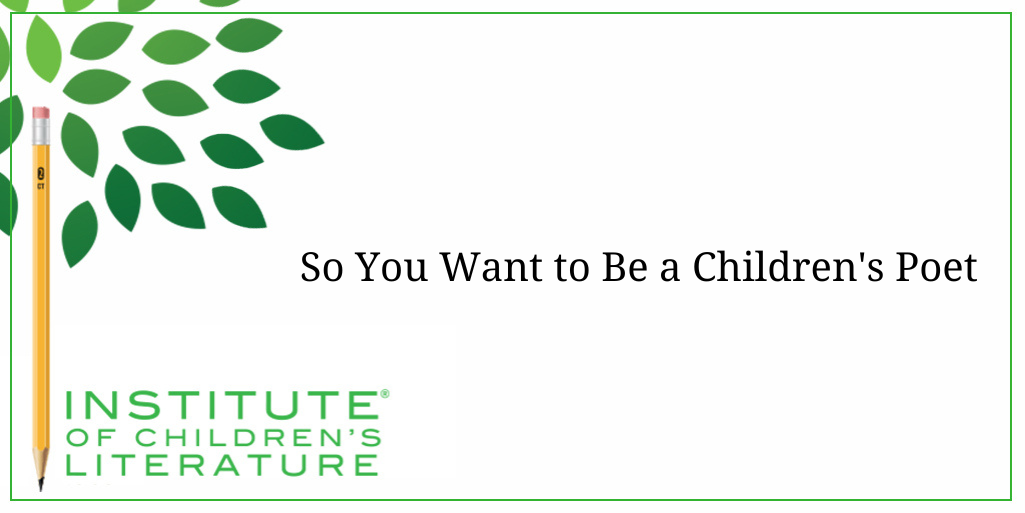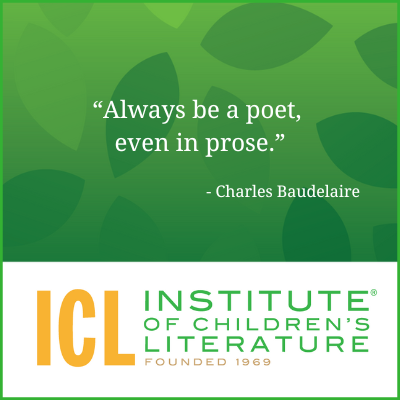
5 Ways Writers Can Prep for 2025 Goal Setting
Before we roll on to the new writing year, let’s harness our optimism for the blank slate before us and prepare for our 2025 Goal Setting just for writers.

First, if you want to write poetry for children, you should write poetry for children. This is true regardless of how publishing works. Writing poetry for children will make you a better writer, a better children’s writer, and possibly a more introspective, smarter person. It’s all a win. However, it is worthwhile to think about how poetry and publishing connect if your goal is to be a published children’s poet.
Today, there are many talented writers who write poetry for children as part or all of their writing portfolio, so the competition is fierce. That doesn’t mean there isn’t room for new voices. Publishing flourishes because of new voices. What it does mean is that children’s poetry is challenging to write and challenging to get published, but challenging is far from impossible. As writers, much of what we do is challenging.
First, the easiest way to sell children’s poetry is usually to sell a poem rather than a collection of poems. If you have no name recognition and no publication credits, it’s not a bad idea to accept small steps on the publishing path before trying for great strides. Poetry for children is still a frequent part of children’s magazines, and that may be the best place to begin building credits for your poetry.

When I sell poetry to magazines, I usually write the poem first and then decide which magazine seems the best match for it. Keep in mind that selling children’s poetry to children’s magazines often (very often) means poetry with a specific even meter, and most of the time it will rhyme. Also, selling to children’s magazines usually means selling short poems as few magazines will consider poetry that spreads to several pages. Finally, selling children’s poetry to magazines almost always means poems for elementary-aged children, not teens. Most magazines that publish poetry for teen readers only look at poetry from teen writers.
Selling poems to children’s magazines is easier if the poem is either seasonally specific (for example, a poem about the return of birds in the spring) or a poem that shines a light on a specific cultural tradition (for example, a poem about learning to make tortillas) or a poem that teaches us something (such as a poem about how sugar spins into candy or a poem about natural spiral formations). Magazines know children love poetry, but they also like to see poetry that offers something more. Sometimes that “something more” can be making children giggle, so humorous poetry is often snapped up as long as the humor is age appropriate and never mean-spirited.
John Foster, children’s poet and anthologist explained to Writers and Artists UK one of the problems with poetry collections for children this way: “Anthologies sell more copies [than single poet collections].” One reason for this, he explains, is that buyers are often more open to a book of poems about a specific thing than a book of varied poems by a specific author. Because of this, most authors who have sold collections have done so by producing a collection of poems all on a single subject.

Though poetry books usually do better with a single theme, they do often benefit from containing a variety of different poetry forms because this is another appealing element for buyers. Again, identifiable forms add a teaching element to a poetry collection. Even with a solid theme, a poetry collection will still fail if the poems are not extremely well crafted. They must be technically adept and bring something new and interesting to the poem. This can be a difficult thing to manage for a whole book’s worth of poems, which is why poetry collections are often by extremely well-published and experienced poets. Finally, don’t be afraid to sell a poem that you think you might like to include in a collection at some future point. Collections often include poems that have been previously published in magazines. The permissions for that will be handled by the publisher.
Another valuable thing you need as a children’s poet is an online presence such as a blog or website. This offers a place where readers might encounter your poetry for free. I’m not a huge “write for free” person since I make my living through writing, but if I were trying to really position myself to be competitive as a children’s poet, I would definitely have an online presence where I post poetry. The poetry needs to be good, structurally solid, with every word chosen carefully. It needs to represent your ability well. And, ideally, it needs to be fun. This is not the best place to showcase your grief poems most of the time.

Look out for poetry contests or anthology opportunities too. Market guides can sometimes include opportunities like that, especially if they repeat yearly, but I would recommend spending some time looking online for opportunities and checking out sites that make a habit of sharing submissions calls, such as Publishing and Other Forms of Insanity at https://publishedtodeath.blogspot.com/
Keep in mind that the value of writing children’s poetry doesn’t just lie in publication. Writing poetry improves your writing ability. It’s a lively challenge, and it’s fun. Many of the poems you write as a children’s poet won’t go on to make you any money, but as an art form, it’s one that will reward you in endless ways. I heartily recommend giving it a try.
With over 100 books in publication, Jan Fields writes both chapter books for children and mystery novels for adults. She’s also known for a variety of experiences teaching writing, from one session SCBWI events to lengthier Highlights Foundation workshops to these blog posts for the Institute of Children’s Literature. As a former ICL instructor, Jan enjoys equipping writers for success in whatever way she can.

Before we roll on to the new writing year, let’s harness our optimism for the blank slate before us and prepare for our 2025 Goal Setting just for writers.

Writers can be thin-skinned when it comes to getting feedback on their work. Let’s look at 4 ways to positively deal with constructive criticism!

Rejection is part of the territory when it comes to being a writer. Today we offer reflection for writers to help redirect your efforts after a rejection.
1000 N. West Street #1200, Wilmington, DE 19801
© 2024 Direct Learning Systems, Inc. All rights reserved.
1000 N. West Street #1200, Wilmington, DE 19801
© 2024 Direct Learning Systems, Inc. All rights reserved.
1000 N. West Street #1200, Wilmington, DE 19801
© 2024 Direct Learning Systems, Inc. All rights reserved.
1000 N. West Street #1200, Wilmington, DE 19801
© 2025 Writewell, LLC. All rights reserved.
1000 N. West Street #1200, Wilmington, DE 19801
©2025 Writewell, LLC. All rights reserved. Privacy Policy.
2 Comments